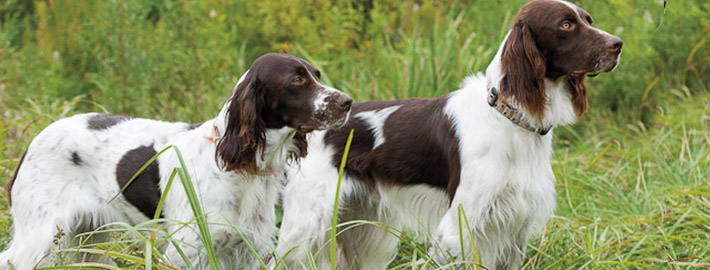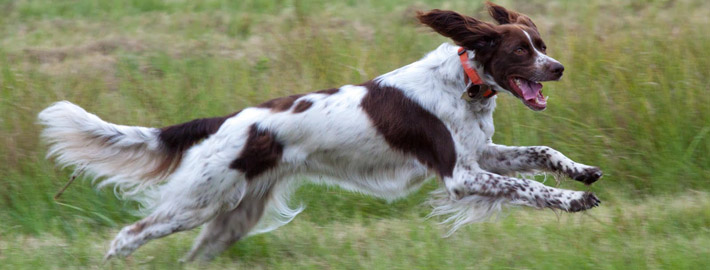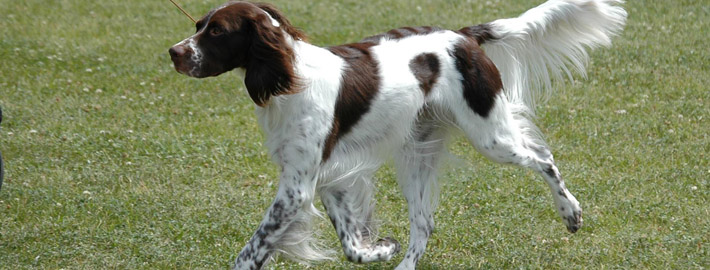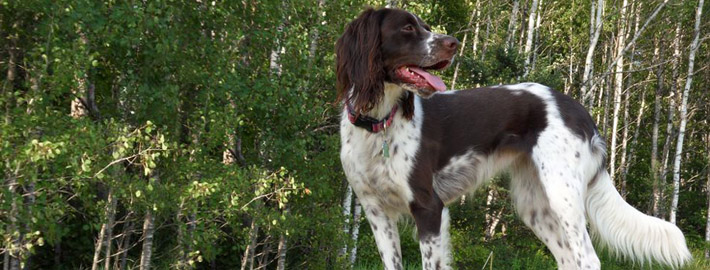What makes the French Spaniel Unique?
French Spaniels very much enjoy the company of their owners. They are gentle with children, making great pets. Rustic looking, relatively tall and powerfully built, the French Spaniel trains well but is easily intimidated; training should be gentle, firm and consistent. They need human companionship and lots of exercise.
Breed Groups
Page Contents
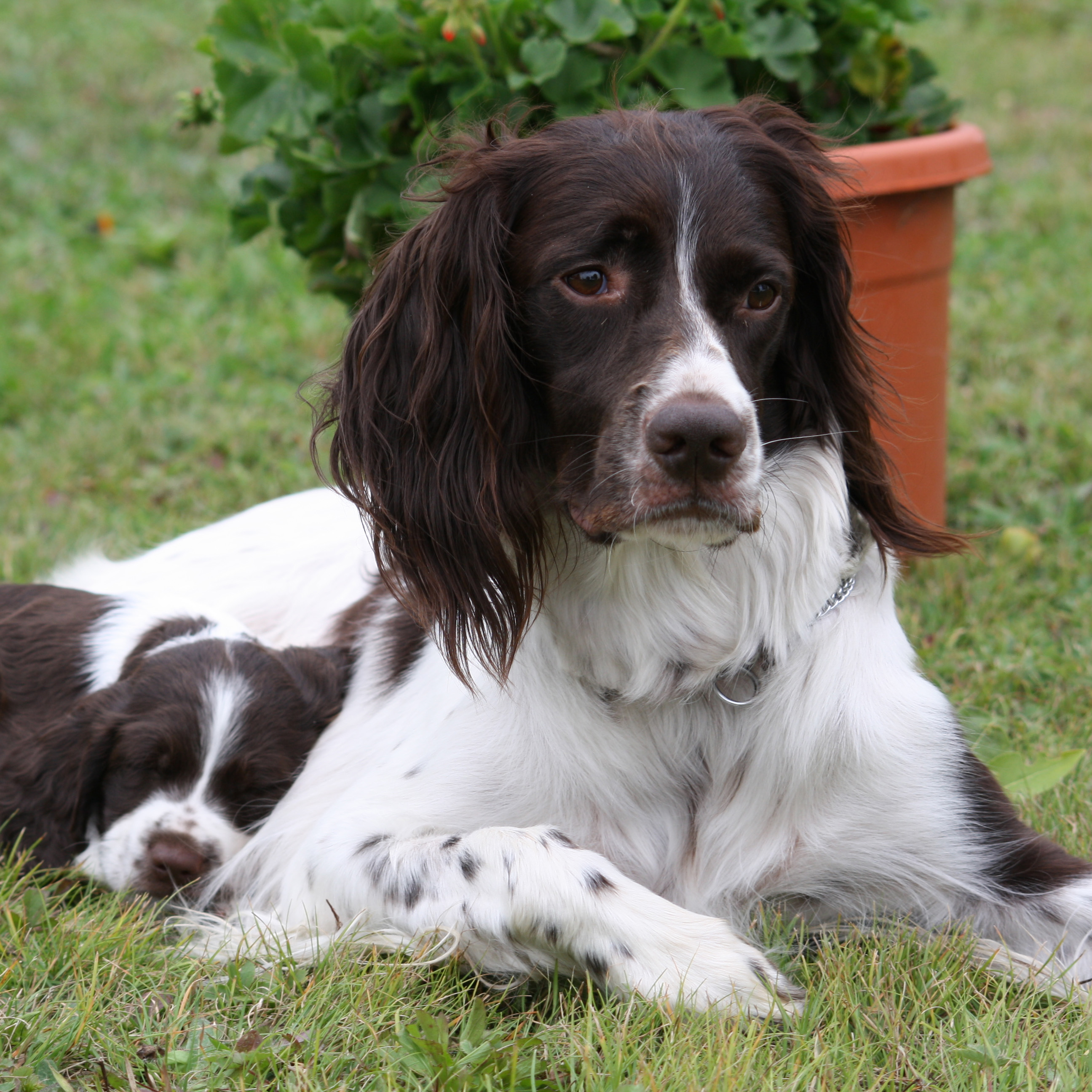
Is the French Spaniel Right For You?
French Spaniels very much enjoy the company of their owners. They are gentle with children, making great pets. Rustic looking, relatively tall and powerfully built, the French Spaniel trains well but is easily intimidated; training should be gentle, firm and consistent
French Spaniels tend to live indoors but are not suitable for small homes such as apartments. Indoors they tend to be very active but thrive with outdoor space and are resistant to cold and damp conditions. They need daily exercise and have great staminaand endurance, and so make great hiking companions.
In 5 Words
- Versatile
- Friendly
- Gentle
- Enthusiastic
- Hardy
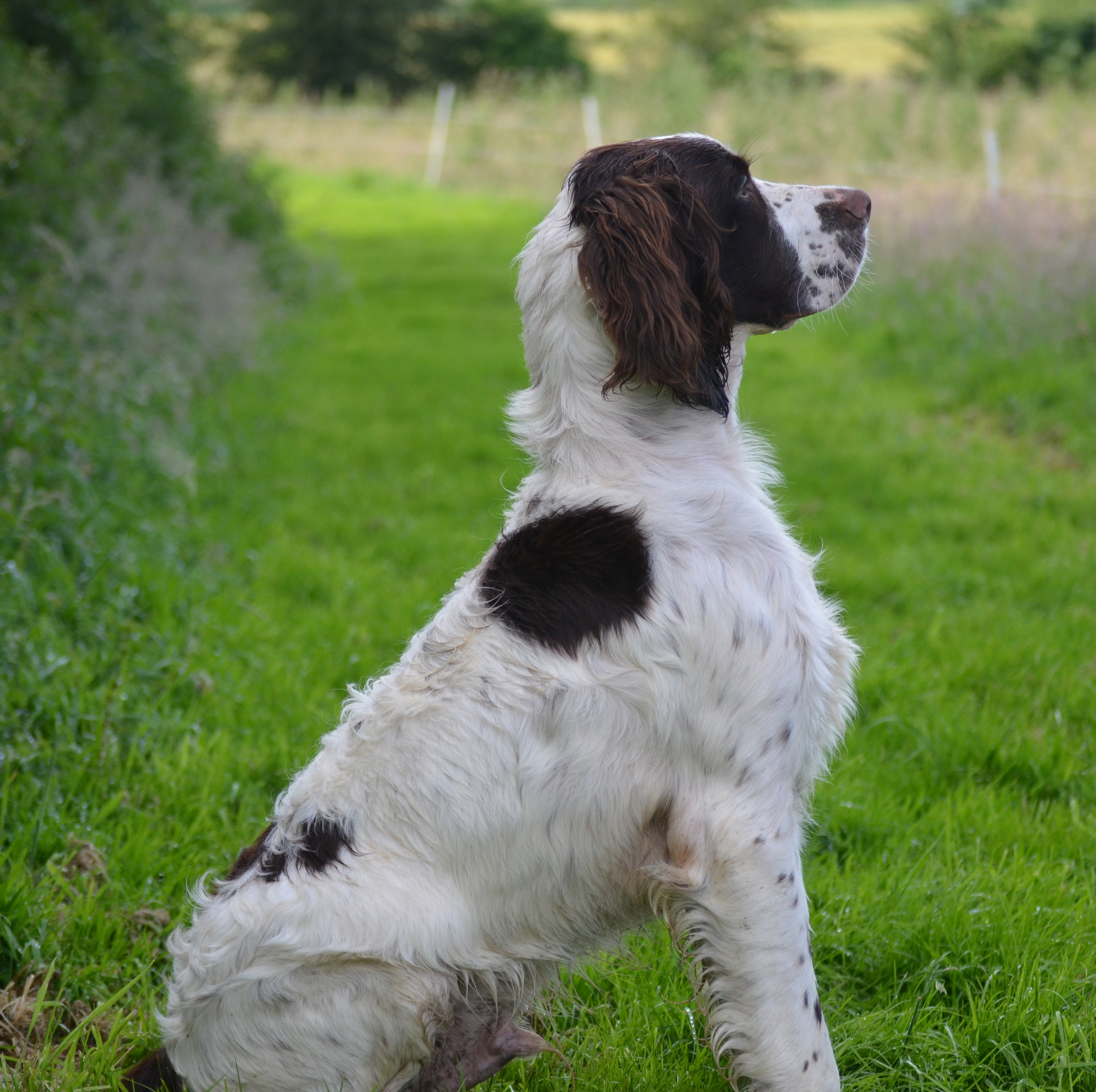
Characteristics
Learn About the French Spaniel
Description
General Description
Just as the French Spaniel has a stable disposition, it also has a stable, sound build. Like other spaniels, it has a medium-length, glossy, wavy coat that is shorter on the head.
The coat is brown and white, with the brown shade ranging from cinnamon to dark liver. Spotting is allowed, while a narrow white blaze is preferred on the forehead but not required. The tail is never docked, and tends to hang low and long with a slight curve. It has flowing, feathered fur which gets shorter toward the top.
Though its gait and looks suggest elegance, this is a hardy, muscular dog, well able to withstand an outdoor life.
Short History of the French Spaniel
The French Spaniel is related to the German Small Munsterlander and Dutch Partridge Dog, and like all of the spaniels who became the first pointers, the French Spaniel is a distant descendant of the longhaired Chien d’Oysel (setter), a dog of the middle ages. The breed was widely used as a game bird hunter in the 1600s. Its numbers dwindled due to the competition with English breeds, however in the nineteenth century, it was revived by Father Fournier. In 1891 the first standard was written by a man named J. de Connick. The standard described the breed as larger and more powerful than the Brittany Spaniel. The breed is still very rare, even in France.
Temperament
The French Spaniel has a friendly and outgoing personality and is well balanced and patient. It is not a naturally aggressive dog, is eager to please and thus can be trained easily. A dog of this breed will form a strong bond with its master, being typically a working dog. It has a high level of stamina and requires vigorous exercise.
Caring for Your French Spaniel
General Health
The breed is robustly healthy with few issues and adapts well to wet weather conditions. A dermatological condition known as acral mutilation and analgesia may affect French Spaniels. It is a newly recognised disorder, with symptoms becoming apparent between three and a half months and a year of age. It was first reported in thirteen dogs in Canada and shares symptoms with the acral mutilation syndromes of the German Shorthaired Pointer, English Pointer and English Springer Spaniels. Dogs who are affected will lick, bite and mutilate their extremities resulting in ulcers with secondary bacterial infections. Self amputation of claws, digits and footpads can happen in extreme cases. The majority of the initial dogs identified were euthanised within days to months of being diagnosed.
Grooming & Bathing
Regular brushing twice a week of the medium-length, flat coat is really all that is needed to keep it in good condition. Bathe or dry shampoo when necessary. It is generally a low-maintenance dog. Check the ears carefully, especially when the dog has been out in rough or brushy terrain. This breed is a light shedder.
Exercise & Training
A dog of this breed will form a strong bond with its master, being typically a working dog. It has a high level of stamina and requires vigorous exercise.

